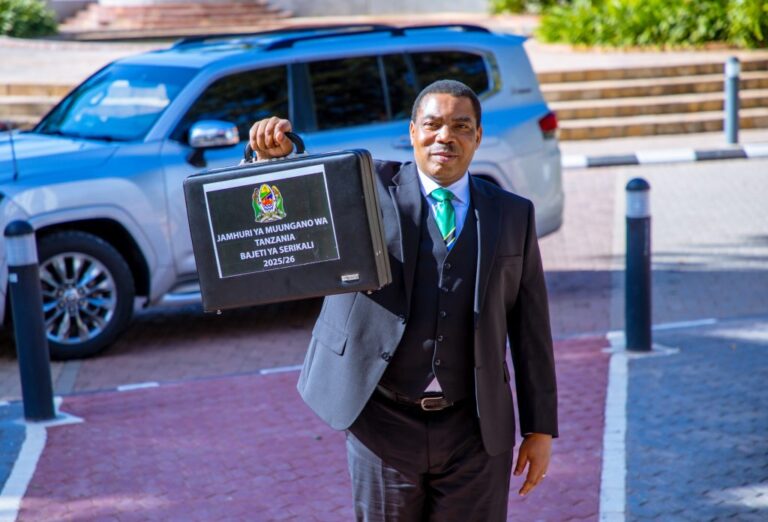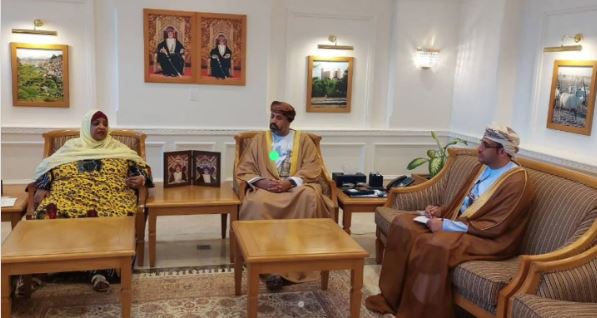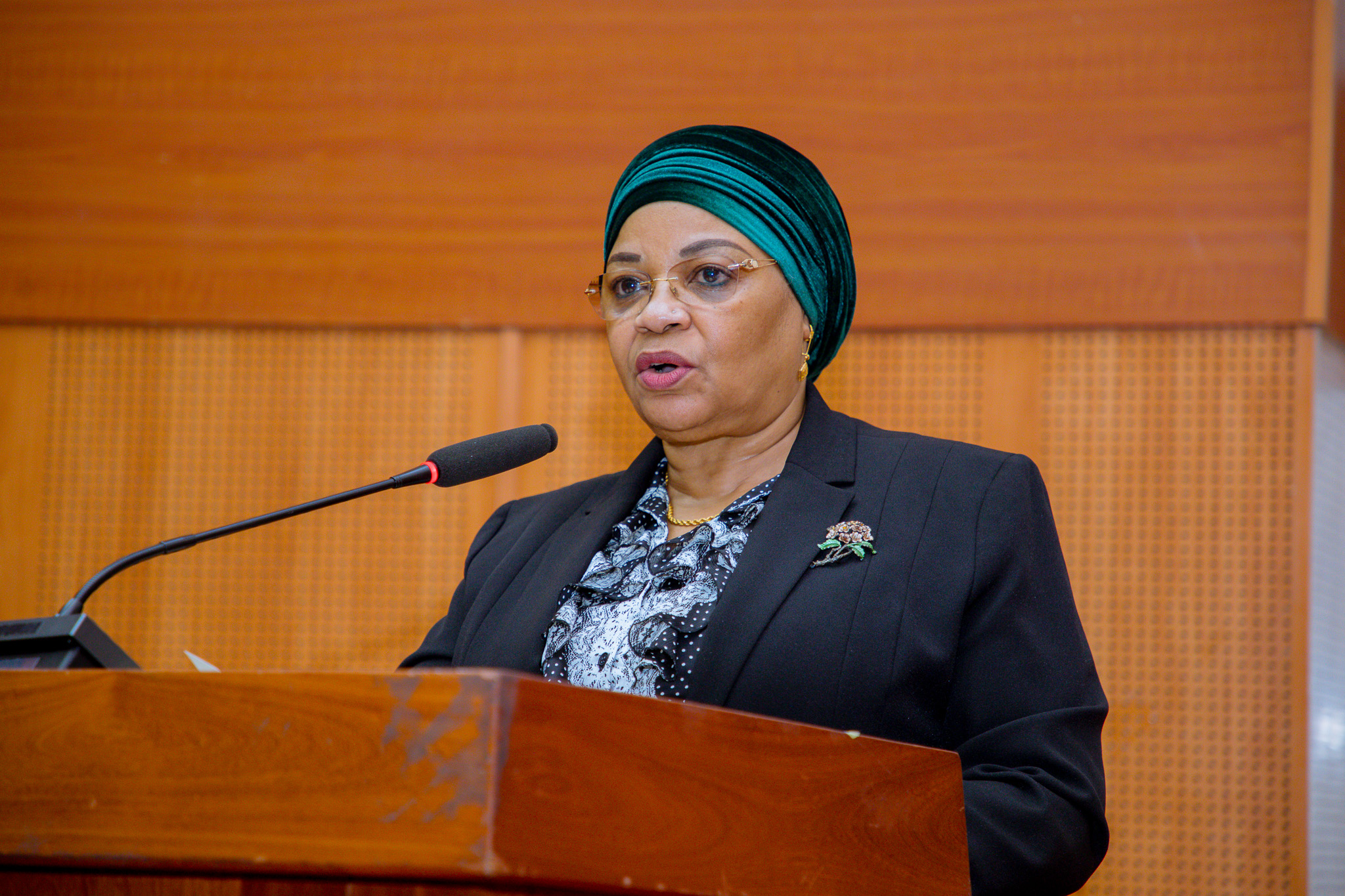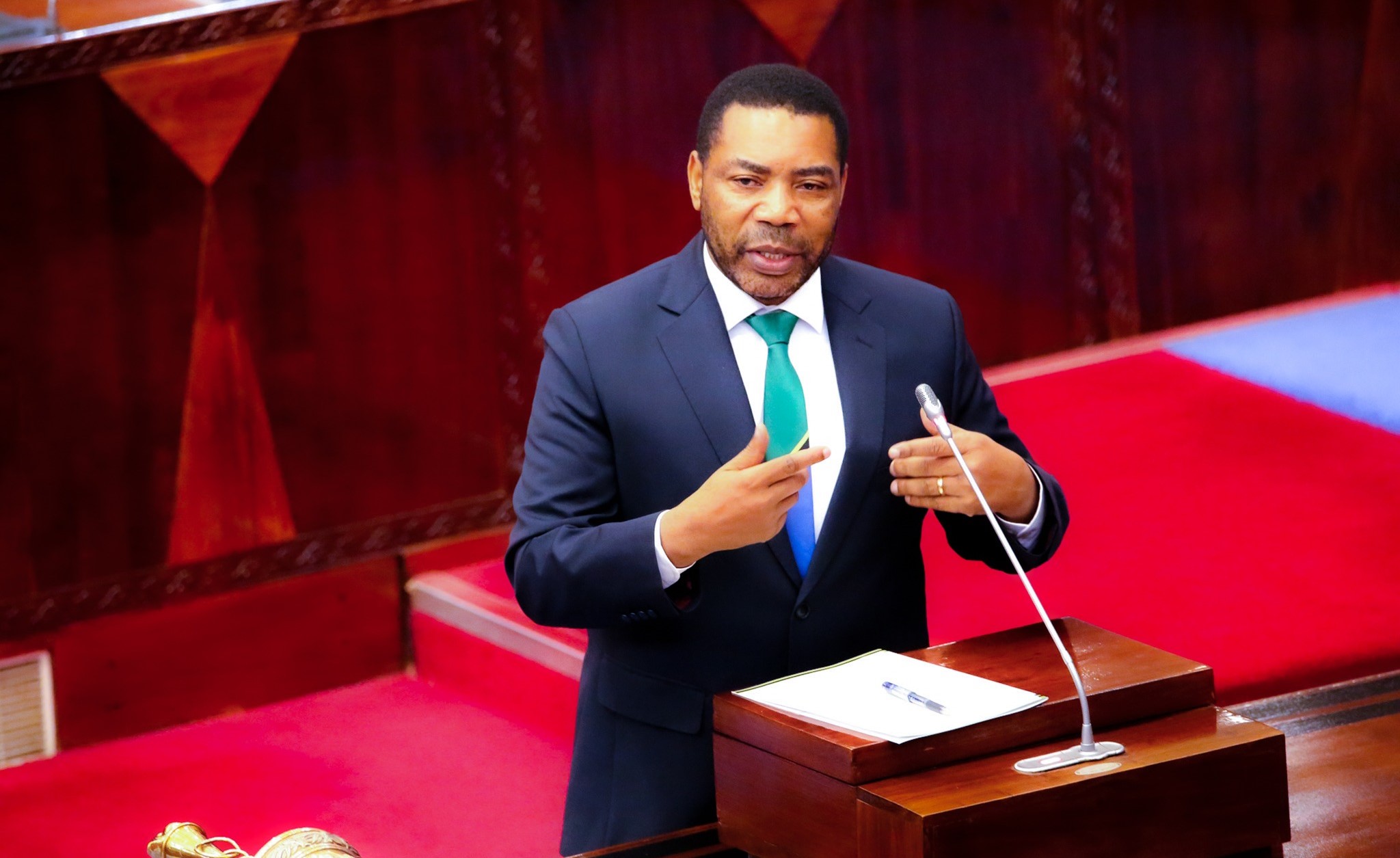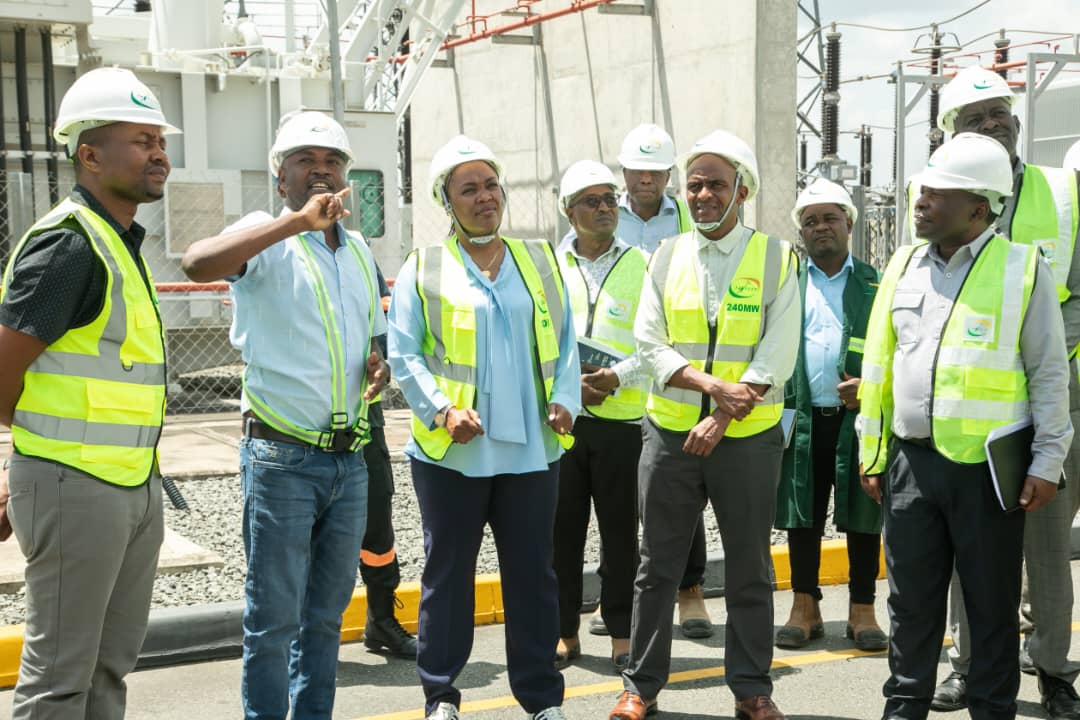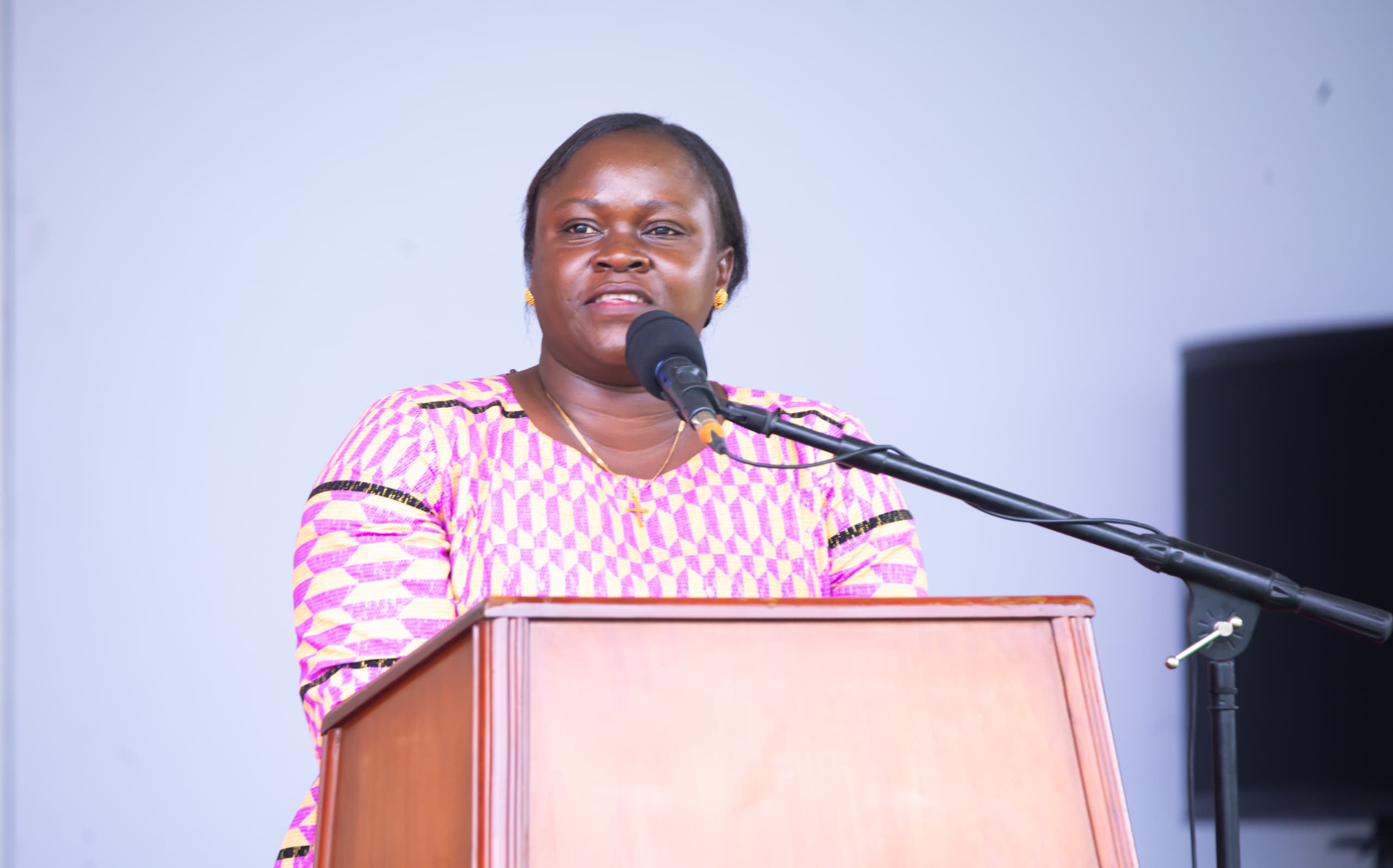Dodoma. The Tanzanian government has tabled a Sh56.49 trillion budget for the 2025/26 financial year.
Reading the budget speech in Parliament on June 12, 2025 the Minister for Finance, Dr Mwigulu Nchemba, said the revenue and expenditure plan is primarily anchored on three key pillars that include increased domestic revenue, strategic investments, and enhanced public service delivery.
Dr Nchemba said the proposed budget would be financed through domestic revenues totalling Sh40.47 trillion, grants amounting to Sh1.07 trillion, and loans worth Sh14.95 trillion.
“Of the domestic revenues, Sh32.31 trillion is expected from tax collection, Sh6.48 trillion from non-tax sources, and Sh1.68 trillion from Local Government Authorities,” Dr Nchemba told MPs in a televised speech.
On the borrowing front, Dr Nchemba said Sh6.27 trillion would be sourced domestically, while external loans are projected at Sh8.68 trillion.
He noted that the proposed government spending includes Sh9.17 trillion for salaries and pension contributions for central government employees, Sh5.58 trillion for goods and services procurement, and Sh6.49 trillion for interest payments on public debt.
Further allocations include Sh22.17 trillion for subsidies to government institutions, public corporations, and LGAs, and Sh7.72 trillion for capital repayments of both domestic and external debt.
Dr Nchemba told the august House that in the 2025/26 financial year, the government aims to accelerate real GDP growth to 6.0 percent, up from 5.5 percent in 2024, while maintaining inflation within the single-digit range of 3.0–5.0 percent in the medium term.
He also projected an increase in domestic revenue to 16.7 percent of GDP in 2025/26, from 15.8 percent in the current year. Tax revenue is expected to reach 13.3 percent of GDP, up from 12.8 percent.
The Finance Minister said key priorities for the 2025/26 budget include completing flagship and strategic development projects, enhancing productive sectors with a high economic impact, strengthening human capital—particularly in social services—and improving the business and investment climate to attract increased private sector participation in economic activities.
“Other focus areas include public debt servicing, salaries and benefits for public servants, and the rehabilitation and construction of sports infrastructure in preparation for the 2027 Africa Cup of Nations (AFCON),” Dr Nchemba.
He also announced that the government would finance the 2025 General Election using domestic resources.
To enhance domestic revenue collection, Dr Nchemba said the government would intensify public awareness campaigns on issuing and demanding electronic fiscal receipts (EFDs) and strengthen revenue collection systems overseen by regulatory authorities.
He said the government would upgrade the TAUSI system to integrate all LGAs’ revenue sources, improve collection efficiency in public institutions and agencies, and ensure timely submission of dividends and contributions.
The TAUSI system is a taxpayer-focused platform that allows individuals and businesses to access services provided by Local Government Authorities (LGAs) through self-service.
These reforms would be complemented by continued implementation of the Blueprint for Regulatory Reforms to Improve the Business Environment.
Tax reforms proposed
Dr Nchemba also announced a wide range of tax reforms targeting predictability and fairness, aimed at stimulating economic production.
“The proposed tax measures are expected to yield additional revenue of Sh4.26 trillion. Among the key proposals is a VAT exemption on pesticides under HS Codes 3808.61.00, 3808.62.00, and 3808.69.00 to ease the cost burden on farmers and boost agricultural productivity,” he said.
Other proposed changes include:
- VAT exemption on reinsurance transactions between insurance and reinsurance firms, to improve competitiveness and promote insurance uptake in disaster mitigation.
- A one-year VAT zero-rating on textiles produced from domestically grown cotton to support local farmers and the garments industry.
- A three-year VAT zero-rating on domestically produced fertilisers, aimed at reducing input costs for farmers.
- A one-year VAT exemption on locally produced edible oil from locally grown seeds, to help stabilise prices.
- Removal of VAT exemption on gaming supplies to align the tax treatment of gaming with other sports, potentially generating Sh322.02 billion.
- Conditional VAT exemption on agricultural inputs like tractor tyres (HS Code 4011.70.00), dam liners (Heading 39.20), forks (HS Code 8201.90.00), rakes (HS Code 8201.30.00), and axes (HS Code 8201.40.00), subject to the approval of the Minister responsible for agriculture.
- Withdrawal of VAT exemptions on bitumen classified under HS Codes 2713.20.00 and 2715.00.00, expected to raise Sh85.61 billion.
- VAT exemption for locally produced newspapers, aimed at reducing publishing costs and improving public access to information.
- VAT exemption on natural gas supplied to refuelling stations for vehicles, to promote investment in gas infrastructure and reduce carbon emissions.
- VAT exemption on cooking gas cylinders (HS Code 7311.00.10) and carbon removal equipment (HS Code 8417.80.00), to support the adoption of clean cooking solutions.
- Inclusion of online marketplaces and digital marketing platforms in the definition of digital service agents, to broaden the tax base and improve enforcement.

